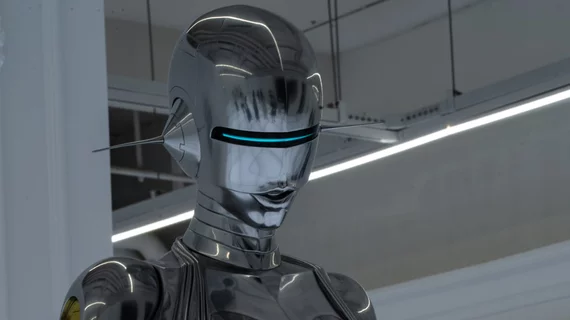Tech thought leaders issue terse warning on humanity’s ‘risk of extinction’ at the hands of AI
Several hundred AI experts, stakeholders and commentators are alerting the world to the technology’s potential for widespread harm. To maximize chances of being heard far and wide, the collective has boiled down the gist of its fears to one succinct sentence:
“Mitigating the risk of extinction from AI should be a global priority alongside other societal-scale risks such as pandemics and nuclear war.”
Drafted by the Center for AI Safety, a San Francisco nonprofit whose name tips its mission, the statement went up on the CAIS website Tuesday. It’s been making headlines and spurring conversation ever since.
Here’s a roundup of things said or written in response to the 22-word message so far. Note that some are avidly supportive, others seriously skeptical.
- “There’s a very common misconception, even in the AI community, that there are only a handful of doomers. But, in fact, many people privately would express concerns about these [risks].” —Dan Hendrycks, executive director, Center for AI Safety (Source: New York Times)
- “How exactly is this end-of-days scenario supposed to go down? ... [I]t seems that humanity’s biggest threat is not our own inventions but rather our boundless talent for hyperbole.”—Jose Antonio Lanz, Esq., Decrypt
- “[B]oth AI risk advocates and skeptics agree that, even without improvements in their [current] capabilities, AI systems present a number of threats in the present day—from their use enabling mass surveillance to powering faulty ‘predictive policing’ algorithms to easing the creation of misinformation and disinformation.”—James Vincent, senior reporter, The Verge
- “Notably absent from the [CAIS statement] are Google CEO Sundar Pichai and Microsoft CEO Satya Nadella, the field’s two most powerful corporate leaders.”—Washington Post reporters Aaron Gregg, et al.
- “Advancements in AI will magnify the scale of automated decision-making that is biased, discriminatory, exclusionary or otherwise unfair while also being inscrutable and incontestable.”—Elizabeth Renieris, senior research associate, Oxford University’s Institute for Ethics in AI (source: BBC)
- “This [CAIS statement] is inherently ridiculous, sorry. No one is making Google and OpenAI develop AI that puts humanity at ‘risk of extinction.’ If they honestly thought it was such a dire threat they could stop building it *today*. They do not, so they won’t.”—Brian Merchant, tech columnist, Los Angeles Times (via Twitter)
- “In today’s world, asking us as a society to act responsibly and to use personal discipline regarding technology is like having a Weight Watcher’s meeting at Wendy’s. I am not optimistic.”—Anonymous New York Times reader commenting on the newspaper’s coverage of the CAIS statement (and garnering more recommendations than any other reader/commenter)
The CAIS statement comes a little less than two months after the Future of Life Institute published a letter calling for a pause of at least six months in all major AI research projects. That letter was signed by Elon Musk and more than 1,100 other technology experts.

